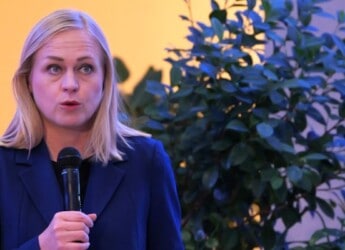ARCHIVED CONTENT
You are viewing ARCHIVED CONTENT released online between 1 April 2010 and 24 August 2018 or content that has been selectively archived and is no longer active. Content in this archive is NOT UPDATED, and links may not function.Extract from article by Dr. Philip Kotler
Marketing is the science and art of exploring, creating, and delivering value to satisfy the needs of a target market at a profit. Marketing identifies unfulfilled needs and desires. It defines, measures and quantifies the size of the identified market and the profit potential. It pinpoints which segments the company is capable of serving best and it designs and promotes the appropriate products and services.
Marketing is often performed by a department within the organization. This is both good and bad. It’s good because it unites a group of trained people who focus on the marketing task. It’s bad because marketing activities should not be carried out in a single department but they should be manifest in all the activities of the organization.
The most important concepts in marketing are: segmentation, targeting, positioning, needs, wants, demand, offerings, brands, value and satisfaction, exchange, transactions, relationships and networks, marketing channels, supply chain, competition, the marketing environment, and marketing programs. These terms make up the working vocabulary of the marketing professional.
Marketing’s key processes are: (1) opportunity identification, (2) new product development, (3) customer attraction, (4) customer retention and loyalty building, and (5) order fulfillment. A company that handles all of these processes well will normally enjoy success. But when a company fails at any one of these processes, it will not survive.
CEOs tend to see marketing as a department that comes into play after the product has been made and the remaining job is to sell it. We argue instead that marketing must be seen as setting the strategic direction for the firm. Peter Drucker stated it well over thirty years ago: “A company has only two basic functions: innovation and marketing.”
Read the complete article at Dr. Philip Kotler Answers Your Questions on Marketing

























